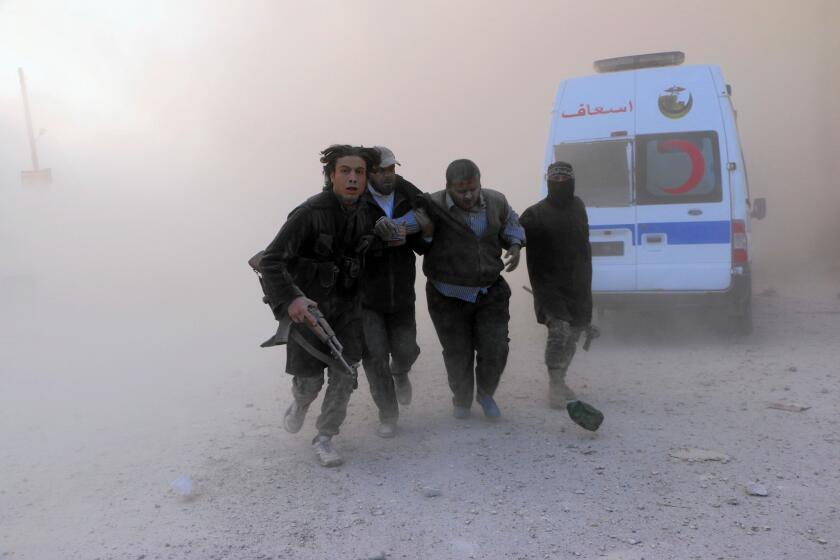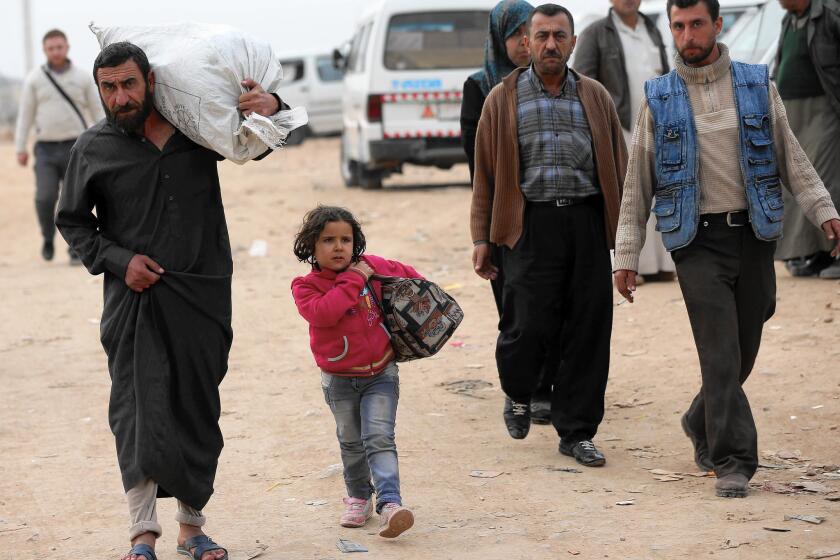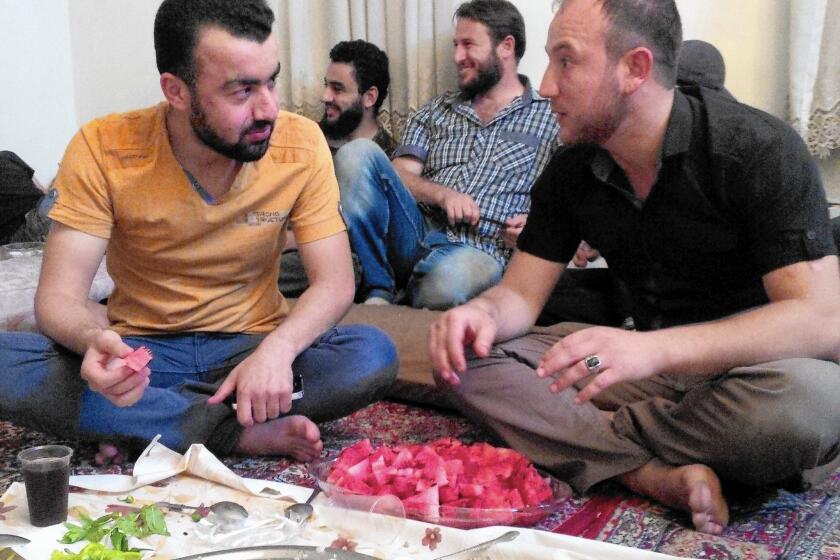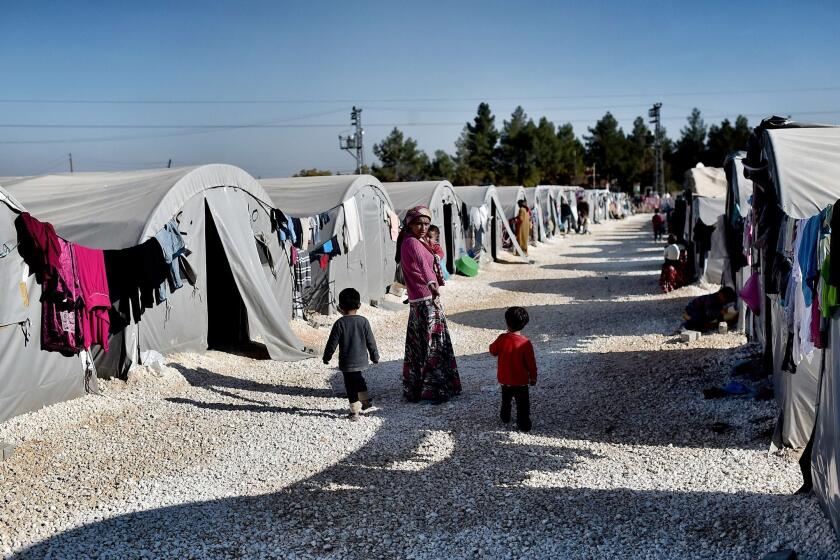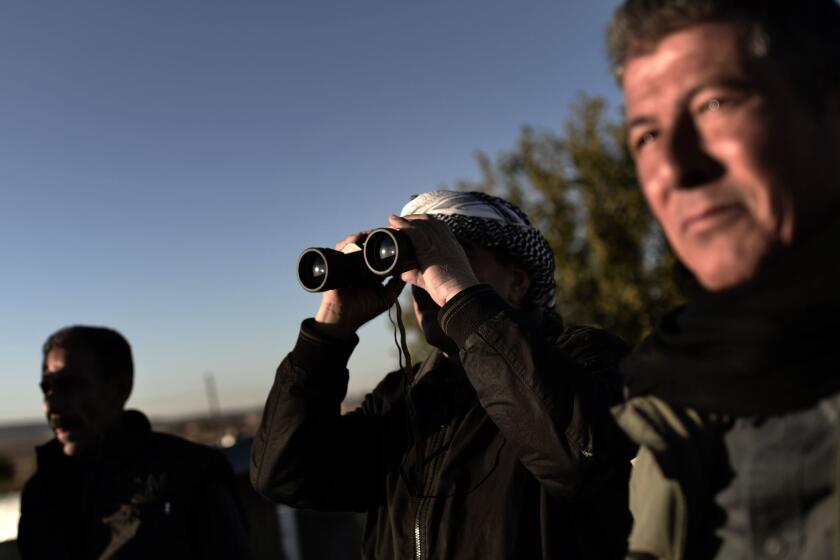
Raja Abdulrahim
Raja Abdulrahim is a former staff writer for the Los Angeles Times. Previously on the Metro staff, Abdulrahim spent a few years reporting from the Middle East, especially Lebanon and Syria. Earlier, she joined coverage of the Arab Spring revolutions and reported from Tahrir Square during the resignation of Egyptian President Hosni Mubarak as well as the first weeks of the Libyan uprising. She started at The Times in 2008.
Latest From This Author
During the 2011 Egyptian revolution, Ramy Essam sang to hundreds of thousands of demonstrators each day.
Since declaring a caliphate, Islamic State has garnered support from more than a dozen Islamist militant groups in the Middle East and Asia, but the dearth of endorsements by many of the largest and most recognizable groups serves to underscore the limits of the newcomer’s grand ambition.
A group with ties to Al Qaeda has gained significant ground across Syria in recent weeks, creating the possibility that the war-ravaged nation will be divided among two opposing militant Islamic groups and the government of President Bashar Assad — with much of the U.S.
Syrian troops are on the brink of surrounding the rebel-held portion of Aleppo, a major setback for the opposition, which has increasingly found itself on the defensive and losing territory in the war.
For three days, Syrian rebels dug through a wall of a library that housed a trove of historical religious texts, and underneath an adjacent road.
Soon after the young woman was released by the Syrian government in a prisoner exchange, activists began noticing the signs.
At the hair salon on her wedding day, a fellow bride turned to Tuqaa Afash and asked who her fiance was.
The number of Syrians able to flee the violent conflict in their country has dramatically declined this year as neighboring countries increasingly turn back would-be refugees at their borders, according to a humanitarian report released Thursday.
The Islamic State militant group kidnapped and tortured dozens of boys in Syria this year, beating them with hoses or electrical cables and forcing them to watch videos of beheadings and combat, Human Rights Watch said Tuesday.
The Obama administration’s plan to raise a 15,000-strong rebel army in Syria has run into steep political and military obstacles, raising doubts about a key element of the White House strategy for defeating Islamic State militants in the midst of a civil war.
